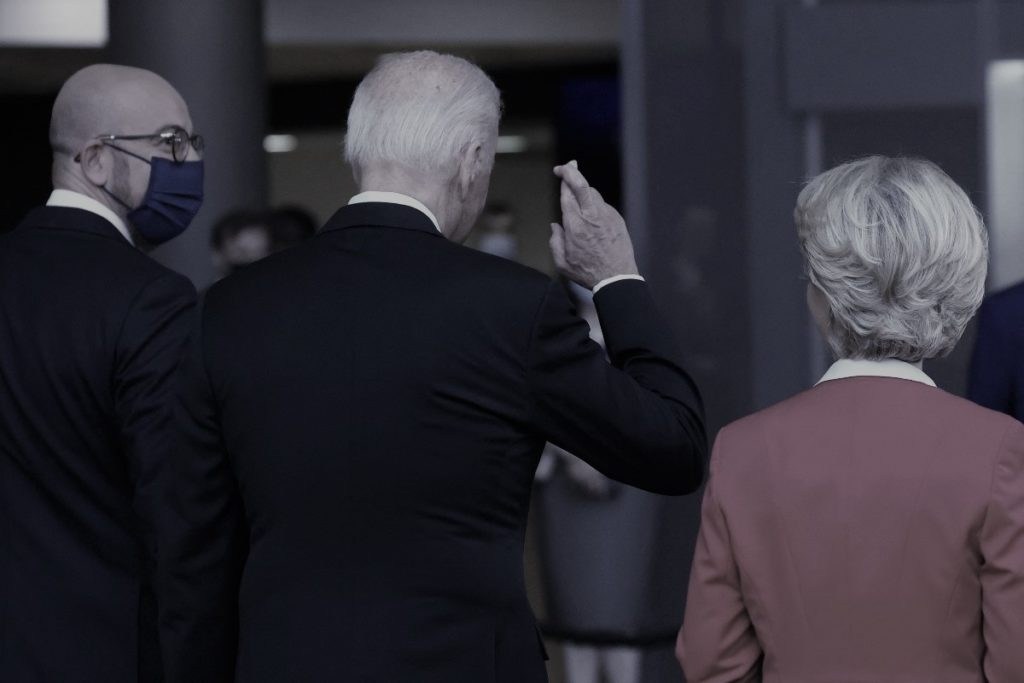BRUSSELS BEHIND THE SCENES
Weekly analysis and untold stories
With SAMUEL STOLTON
How the Taliban may impact Europe's green goals
US needs to learn to talk to Europe
It had been heralded as an opportunity to integrate trade and policy ties between two parts of the world that have, over recent years, drifted further apart.
For much of the past week, the fate of the EU-US Trade and Technology Council (TTC) has fallen victim to a spiky diplomatic spat between France and the US, with the European Union being dragged into the outcry over France’s sidelining from a new Indo-Pacific security pact between Australia, the US, and the UK, after having previously held a lucrative contract for the provision of submarines with Australia.
BRUSSELS BEHIND THE SCENES is a weekly newsletter which brings the untold stories about the characters driving the policies affecting our lives. Analysis not found anywhere else, The Brussels Times’ Samuel Stolton helps you make sense of what is happening in Brussels. If you want to receive Brussels behind the scenes straight to your inbox every week, subscribe to the newsletter here.
At the beginning of the week, Paris’ animosity over the so-called Aukus pact, was hastily transmitted to the French representation in Brussels, intensified by comments from the country’s Foreign Minister Jean-Yves Le Drian, who called the move a “stab in the back.” President Macron recalled ambassadors from Washington and Canberra. Europe Minster Clement Beaune targeted the UK’s role in the agreement, saying that it was “in the lap” of the US capital.
The pressure Paris had imposed on the European Commission in Brussels made its way to Washington, where a contingent of EU officials were attending UN talks. Von der Leyen voiced her concern at France’s treatment by Australia, the US, and the UK.
In a further effort to exert diplomatic pressure on the Americans, France had requested to postpone talks on the new EU-US trade and technology council, a group established to foster policy alignments between Brussels and Washington.
However, after a significant degree of uncertainty during the week, the EU Commission confirmed on Thursday evening that the talks, set to take place next week in Pittsburg, would be going ahead. The confirmation came after talks between Macron and Biden, in which the latter is understood to have offered up a tight-lipped admission that perhaps his team should have briefed Paris before going ahead with the Aukus agreement.
The real objective behind the establishment of the EU-US TTC is to mitigate the increasing global power of China’s export market and their supremacy in supply chains for technological products and services. At the EU-US summit in June, Washington’s National Security Advisor Jake Sullivan said that greater alignment on trade and technology between the US and the EU was necessary so that “democracies and not anyone else — not China or other autocracies — are writing the rules for trade and technology for the 21st century.”
One can only imagine the delight emanating out of Beijing this week at the sight of rivals in the West squabbling over a security pact that's been designed to counter hybrid threats from the East, and then, consequently, the potential destabilization of the TTC, which has as one of its objectives the goal of obstructing China’s trade supremacy. Beijing would no doubt have been basking in the satisfaction of Europe and the US engaging in a very undiplomatic tit-for-tat.
EU officials briefing journalists on the TTC were keen to make clear Friday that all was in order place for Pittsburg on September 29, and previous differences that may have derailed the talks had been settled.
When Biden settled into his Presidential seat at the beginning of the year, many in Europe had rejoiced at his win, following the prickly relations between the EU and former leader Trump. But Biden hasn’t got off to the greatest of starts in terms of his relations with Europe since assuming office in January.
At the core of the issue here is a US administration that lacks a coherent communications strategy with partners. The Trumpian model of tweeting out high-level announcements, government positions, or just personal sentiments was something that allies and foes alike came to expect as a new normal in global diplomacy.
When Biden took over, everyone had expected a transition back to conventional channels of intergovernmental communication. Such a system, functioning as harmoniously as it should, doesn’t appear to have been put into place by Washington just yet. Goodness knows that many a recent scandal would have been avoided had it been.
BRUSSELS BEHIND THE SCENES is a weekly newsletter which brings the untold stories about the characters driving the policies affecting our lives. Analysis not found anywhere else, The Brussels Times’ Samuel Stolton helps you make sense of what is happening in Brussels. If you want to receive Brussels behind the scenes straight to your inbox every week, subscribe to the newsletter here.

